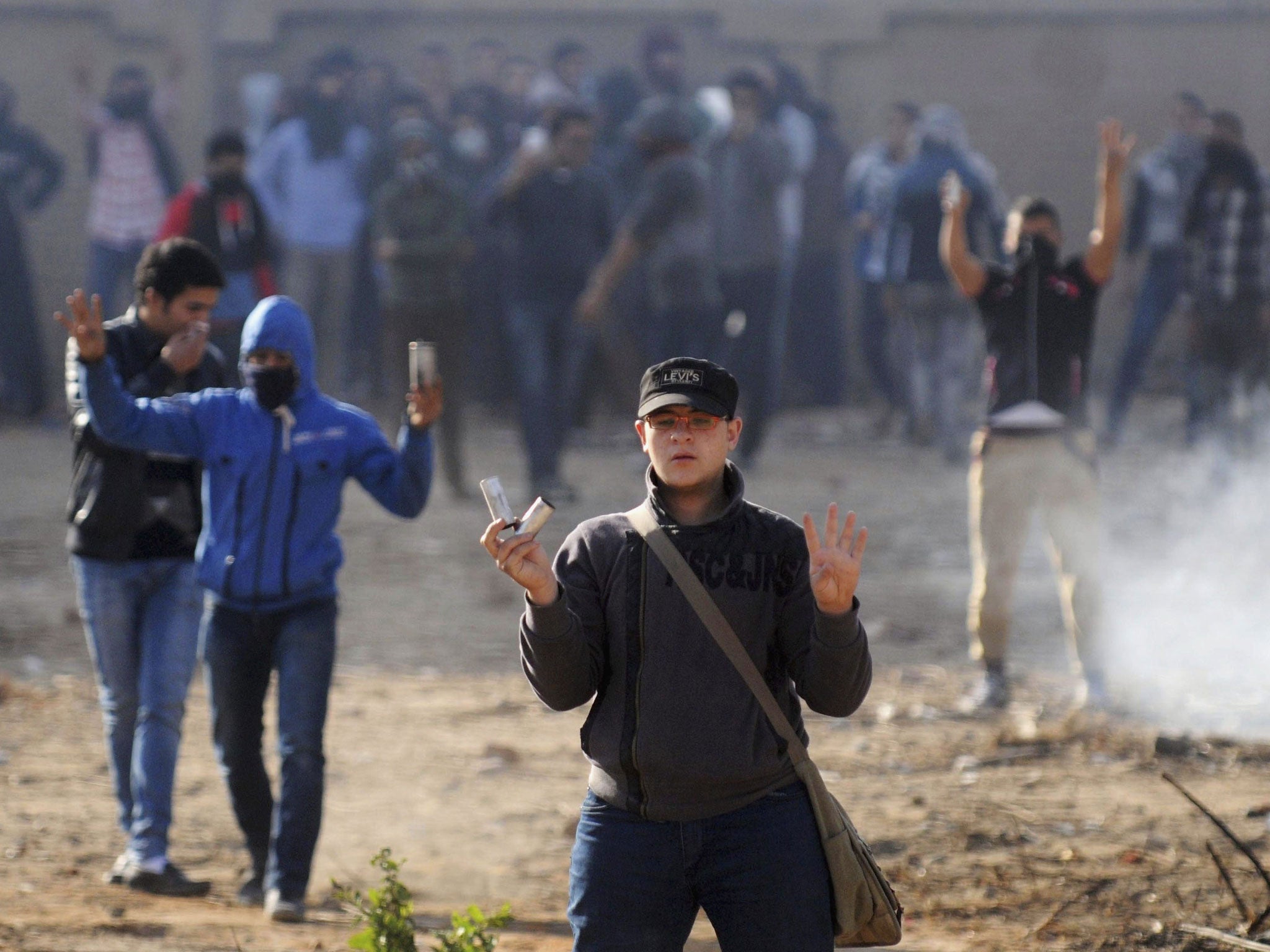By branding the entire Muslim Brotherhood as terrorists, General Sisi is adopting a well-tested tactic of past Egyptian dictators
Nasser didn’t hesitate to call on the hangman to decapitate the Brotherhood

Your support helps us to tell the story
From reproductive rights to climate change to Big Tech, The Independent is on the ground when the story is developing. Whether it's investigating the financials of Elon Musk's pro-Trump PAC or producing our latest documentary, 'The A Word', which shines a light on the American women fighting for reproductive rights, we know how important it is to parse out the facts from the messaging.
At such a critical moment in US history, we need reporters on the ground. Your donation allows us to keep sending journalists to speak to both sides of the story.
The Independent is trusted by Americans across the entire political spectrum. And unlike many other quality news outlets, we choose not to lock Americans out of our reporting and analysis with paywalls. We believe quality journalism should be available to everyone, paid for by those who can afford it.
Your support makes all the difference.I don’t want to sound alarmist, but are Abdel Fattah el-Sisi and his fellow generals in Egypt planning to hang ex-President Mohamed Morsi and his Muslim Brotherhood colleagues? Impossible you might say. Nasser turned on the “Ikhwan” with Saddam-like ferocity only when a Brother – a plumber called Mahmoud Abdul Latif – tried to assassinate him in Alexandria in 1954. The Brethren, Nasser’s cops decided, were plotting to overthrow the regime – which is exactly what Morsi’s chums are now accused of. Once you brand an organisation as “terrorist” in the Middle East, the shadow of the noose passes across its members.
Now that the al-Qa’ida-style uprising in Sinai and the car bombs in Cairo have been artificially conflated – as we knew they would – into a Brotherhood “conspiracy” every bit as terrifying as the one which Nasser identified, Sisi and his chums can use whatever means they wish to liquidate a movement that has existed for 85 years. They will fail, of course, not least because Nasser and Anwar Sadat and then Hosni Mubarak realised that the Brotherhood is politically corrupt and will consort with any military regime to return to legitimacy. Morsi himself negotiated with Mubarak when the latter’s thugs were shooting down demonstrators in Tahrir Square. Sisi was appointed defence minister by Morsi.
No, it is the little men who will go on paying the price. Guys like Bassem Mohsen, who protested in Tahrir against Mubarak – three of whose then-colleagues in the square have just received three-year sentences for demonstrating against Sisi’s new anti-protest laws – and who then, during later and violent demonstrations outside the Interior Ministry, was shot through the eye by a cop. It is still unclear whether he was a victim of the infamous Eye Sniper of the Egyptian internal security police, a certain Lieutenant Mohamed Sobhi el-Shenawy who enjoyed blinding his unarmed enemies with shotgun pellets before finally being arrested and sent to prison for, yes, exactly three years. His mini-atrocities were therefore rated by the government equal to the bravery of Bassem Mohsen’s three comrades who got three years each for peacefully opposing Sisi’s anti-democratic laws.
Mohsen, however, paid the ultimate price. Two weeks ago, he was shot in the head and chest during yet another anti-government demonstration in his native city of Suez. A victim of quick-firing cops or armed protesters? No one, of course, will ever know. Bassem Mohsen had fought against Mubarak, then against the military regime which succeeded him, then against the elected President Morsi’s Brotherhood thugs, and then against the new, unelected, military-led regime, standing shoulder-to-shoulder with his old enemies of the Brotherhood. He could not stomach the killing of 1,000 men and women when Sisi crushed the Brotherhood sit-ins last August. He was especially angered by the new constitution’s plan to allow the army to try civilians before military courts (an old trick of Mubarak’s, as it turns out).
So in future, every supporter of the Brotherhood is a “terrorist” worthy of death – as this weekend’s five civilian killings proved yet again – and thus of a military trial and a possible death sentence. That’s how Mubarak dealt with his most intransigent Islamist enemies. Nasser didn’t hesitate to call on the hangman to decapitate the Brotherhood. And Sisi, whose own uncle was a member of the Brotherhood more than half a century ago – what does he want of Morsi?
And what of the liberal middle classes and the young who – along with workers, Islamists, the poor and the elderly and the intelligentsia – demanded the overthrow of Mubarak? Far too many of them fell into line after telling the army to get rid of the president they had themselves elected. Far too many – journalists, alas, among them – applauded Sisi for stamping out the Brotherhood; for “saving” Egypt from Brotherhood “tyranny”; for crushing an Islamist “coup” staged by an elected president; for gunning down, let’s face it, so many innocents.
Now these authors and artists, too, are having second thoughts. Human rights groups are being harassed, their members arrested. It’s a replay of the country’s most humiliating recent history. Must Egypt re-infantilise itself back to the Nasser and Sadat and Mubarak eras? Is Morsi to be done away with? It’s one thing to find that Sisi’s neatly iced face appears on chocolates – quite another to eat them.